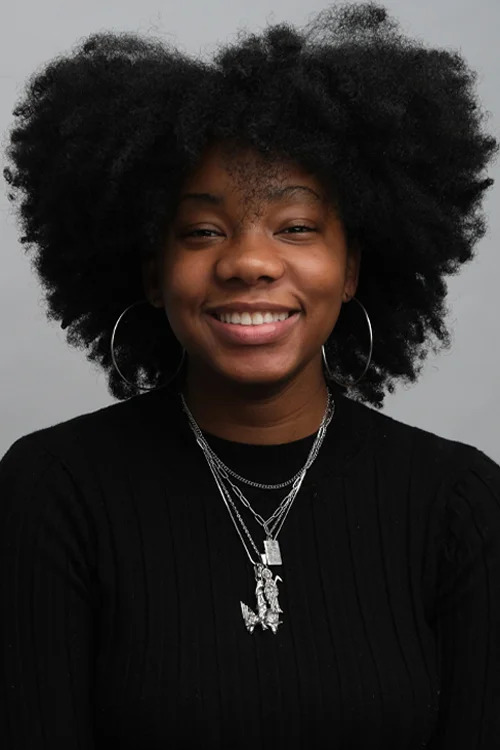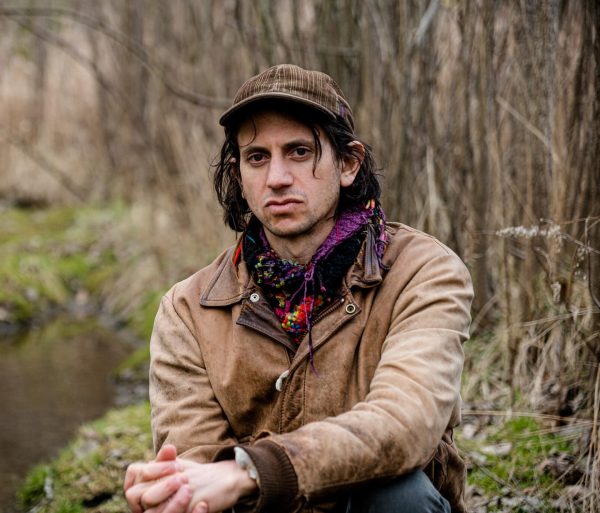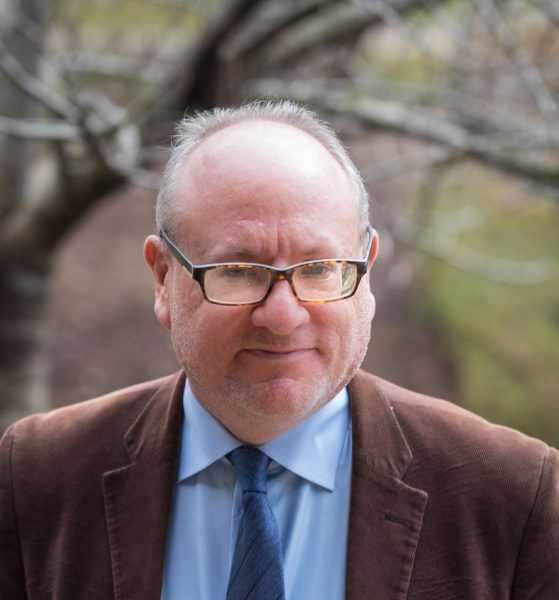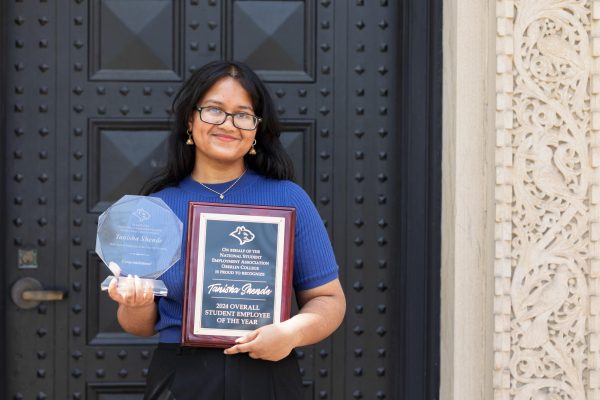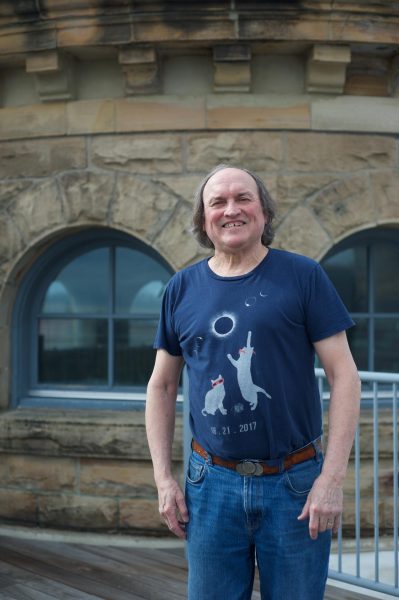OTC: College Third-year, Mellon Mays Fellow Ari Henry
Photo Courtesy of Oberlin College
Ari Henry
Ari Henry is a third-year History major and Mellon Mays fellow studying misogynoir, a term coined by Moya Bailey describing the dislike of, contempt for, or ingrained prejudice against Black women. He focuses on misogynoir across social media platforms with Professor Meredith Gadsby. Henry created the Black Feminist Student Research Panel to showcase the work of Black researchers on Oberlin’s campus looking at topics around the experience of Black women.
This interview has been edited for length and clarity.
How did you get into doing research at Oberlin?
I used to hang back after class and talk to one of my professors a lot my first year. I told her that I wanted to be a professor, and she told me about the Mellon Mays Undergraduate Fellowship. A similar thing happened with my advisor at the time — I told them I want to be a professor, and they told me about Mellon. They were like, “You know what, I will reach out to the coordinator of Mellon and I’ll tell them about you and we’ll see what happens.” Turns out the professor who I was friends with was the coordinator of Mellon, so my advisor reached out to the coordinator and then I got an email from the coordinator like, “Ari, your advisor just got done emailing me and was raving about you.” From there, I just applied. I ended up asking [Associate Professor of Africana Studies and Comparative American Studies] Yveline Alexis if she knew anybody in the Africana Studies department who could mentor me, and then she led me to [Associate Professor of Africana Studies and Comparative American Studies] Meredith Gadsby.
How did you decide what topic you wanted to research?
I knew immediately that I wanted to do something within the realm of misogynoir, because it’s easiest to work with something that I care a lot about, such that I am constantly motivated to continue with it. When I said that to the program coordinator, she was like, “Did I ever tell you I went to grad school with the person who coined that term?” Around 10 years ago, a scholar, Black feminist, and professor, Moya Bailey, coined the term to give language to the intersection of oppression Black women face on account of being Black and women. She specified that it was not supposed to be a compounding thing but rather specifically the intersection. I just kind of got caught up thinking about how easy it is for people online to laugh at Black women when they’re in pain and when they are very obviously suffering.
Can you tell me a bit about your research process?
I have three archives. One is a literary archive. Those are the people whose shoulders I stand on, who I cite in my work. Then I have my visual archive. Then I have an archive that is still visual but focused on text posts. So that summer was just a lot of relentless archiving. I focused on 4chan because I wanted to get that over with first, ’cause I knew it would be the worst part of it. Twitter is honestly probably the easiest one to archive from. I’ll also do TikTok, which is not as accidental as with Twitter, but sometimes if there’s a trend, then I’ll run into something in that case. The videos in my TikTok archive are a very interesting strain of misogynoir, because it gets elusive when you get to more mainstream platforms. Once you hit the mainstream, you can’t say so explicitly what people on 4chan would say.
What made you want to bring this panel together?
When I first became a Mellon Fellow, they were really hyping up the conference that was gonna happen in October 2022. We got to the conference, and the coordinators had given us a little tote bag and a program, albeit the program didn’t have the panel assignments, just the panel titles. [College fourth-year] Kari Allen was like, “You and I are probably gonna be in the same panel ’cause the work we do is close.” There’s this one panel title called “Observations of the Black Feminine Experience,” and that was panel two. She was like, “See, panel two is gonna be us.” So 10 p.m. comes and I’m in the car with my friends and somebody says, “Oh, they sent out the panel assignments.” Even though I already know where I’m gonna be, I just figured I’ll look anyway. I see my name and Kari’s under “Studying Bondage,” and I think to myself, “This does not make any sense.” Neither myself nor Kari have looked at enslavement. We get to the presentation portion and Kari and I both have to kind of open with, “I’m not doing bondage. I’m sorry that I’m here, but I hope you like it anyway.” Kari was like, “No, I want you all to think about why they would’ve put me here, even though I’m not doing this.” Once that happened, I could not find it in me to enjoy the conference. [Professor of Sociology] Greggor Mattson, first, was quite apologetic, and then asked me if there was anything that I wanted to do to highlight my work here at Oberlin. That’s when I got the idea of doing something like the symposium that we had at the end of the summer but just for people who were like me. I talked about it with Kari, and she thought it was a good idea. More or less, if you are a Black woman who would like to do something, you do it on your own.
Who did you invite to join the panel? What was your process in bringing it together?
Earlier, I said on my own. That’s not entirely true. I did have people helping me, like Professor Mattson, [Director of Musical Studies and Mellon Mays Undergraduate Fellowship Administrative Coordinator] Kathryn Metz, and [Office of Undergraduate Research Program Coordinator] Emily Spezia-Shwiff, OC ’21, as well. The technical aspect of it they handled, which I appreciate a lot. The first person who I asked was a friend of mine, College third-year Bour Opoku. I thought of them first because the work that they do was just as taxing as, if not more than, the work that I do. The idea of them only getting to present one time just bothered me. So I was like, “Hey, you can do this with me and you can have as much time as you want.” The first time we all presented, we only had 10 minutes. This panel is two hours long, so we all get a lot more time to expand and we also get more time for questions.


